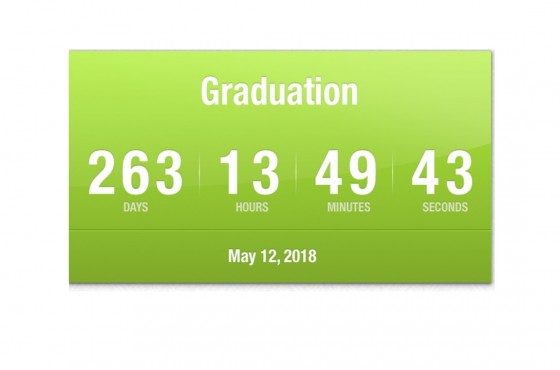Conducting a Job Search is a Skill You Can Learn
Riding a bike. Spiking the ball. Eating all of the pellets on the game board. All require skills you learned, and then mastered. A job search is no different. There are specific skills to conducting a job search that once learned, can help make search more productive.
#1: Get into the right mindset
It is important to shed the “I’m a college student” mindset and start acting like a new professional, which means if you want a job, act that way. Your job is to find a job. You need to show up every day and become successful at what you do.
You are in control of your job search. If you’ve recently graduated, you show up every day to work at finding a job. If you’re in school, you need to set aside blocks of time to work at your job search. You won’t have success with a hit and miss strategy.
How you can get into the right mindset. Set small goals—daily and weekly—you can easily achieve to boost your motivation. For instance, you can set a weekly goal of reaching out to 5 people who can help you get a job. When you reach your goal, your brain will reward you with dopamine, which gives you a motivation boost. This is an excellent way to build a habit of working toward your goal every day.
#2: Know yourself and the value you offer
Knowing yourself is the start of everything: love, happiness, success, career. You want to make decisions based on what you are good at and what you love to do. To do that, you need to identify what makes you you, and then communicate your uniqueness to employers, both verbally and in writing.
Think accomplishments not tasks. A way to get to know your skills and how you’ve used them, is to look at your accomplishments using the S.T.A.R. approach—situation, task, action, results.
- Situation: Describe the situation that you were in or the problem you were asked to solve or the challenge you faced.
- Task: What goal were you working toward?
- Action: Describe the action you took to address the situation. Actions relate to your skills.
- Results: Describe the outcome of your actions. These are your accomplishments.
#3: Do what you are good at
So many career choices. Where do you start? How do you know how to choose? Psychologist and Swarthmore professor Barry Schwartz says too many options results in paralysis, “Learning to choose is hard. Learning to choose well is harder. And learning to choose well in a world of unlimited possibilities is harder still, perhaps too hard.”
Pick something that complements your strengths. You need self-awareness to understand whether you’re good at something. Translate your knowledge-based skills those earned from your major/degree and experience into skills you use well or very well and involve actions and situations that you find interesting. Using the S.T.A.R. approach you’ve completed, distinguish between your knowledge-based and interpersonal skills.
#4: People don’t hire resumes. People don’t hire cover letters. People hire people.
People care about your story, performance and potential. Knowing your value sets you on the path to finding a satisfying and successful career. Now you want to write it down. Your personal brand story is the narrative of who you are and clarifies exactly what you do, how you do it and, if possible, for whom. By communicating your story, employers will know exactly what you are capable of doing for them.
Use your brand story to create marketing materials. The first of which is your resumé. Although a chronological listing of your jobs and education, it is first and foremost a story of your accomplishments that highlights your skills. Your LinkedIn Profile page is the long-form story of your talents told through a headline (120 characters) and summary section (2,000 characters.) And your story informs your :35-:45 second response to “tell me about yourself.”
#5: Target
A job search is a numbers game, but not in the way you might think. Sending out hundreds of resumes does not increase your odds of getting an interview. Targeting employers is the way to increase your chances of getting an interview.
Your job search is a focused marketing campaign and you’re the brand. Your targets are employers where there is a good fit. Fit is affected by two things: personal factors and cultural factors. Personal factors include having the skills to perform a job, combined with the drive to use those skills effectively. Cultural factors include your qualities or character, and how these fit with the manager and the organization.
#6: Initiate conversations
It’s time to put your relationship-building skills to use in your job search. Networking or informational interviews, whatever you want to call it, has one goal: To have meaningful conversations with the people who can help you, or are connected to people in the profession/career or job you are interested in or actively pursuing. Get them to share their experience, ideas, information and advice that can be helpful to you.
Don’t network with the objective of finding a job. Instead, focus your networking activities on connecting, making friends, and starting relationships.
Prepare for conversations. Study the employers on your list, identify at least two people who are in the career field you’re interested in, find ways to contact them and when you have established a connection, have a script so that you don’t waste their time and importantly, you get the information you need. (Read more…)
#7: Nail the hiring process
This is the easy part. You’ve done all the work by this stage. You’ve researched the company and provided value. Now, it’s time to close the deal, by adding more value.
There’s a lot of advice about job interviews on the internet; most of it is obvious: prepare, view it as a sales call, do role-plays, keep eye contact and don’t lie. You know all of this. It’s good advice, but those things will not get you the job. The most critical ingredient you need is self-awareness.
Nail it. Interviewers are interested in your performance. Tell a story. How did you solve problems? How did you overcome certain challenges? End the story with a quantified achievement. This is behavioral interviewing. (Read more…)
An often overlooked, yet critical component of the hiring process is the post-interview communication. Your email to interviewers is not a thank-you, it’s a piece of marketing that reinforces your value. (Read more…)
#8: Close the loop
Finally after all your hard work you got the job. You deserve to celebrate. Wait, there’s still one more step in your job search. You need to close the loop by sending a thank-you, I’ve accepted a position email (or call) to the people you connected with during your job search.
Leave a strong impression. Close the loop with people you had an informational interview with and particularly those who connected you to others, those you interviewed with multiple times and/or stayed involved during the interview process, and employers who made you an offer you did not accept. Be sure to let your school’s career services center know, even if they were not involved in your job search. They should want to know where their students have landed jobs. (Read more...)



